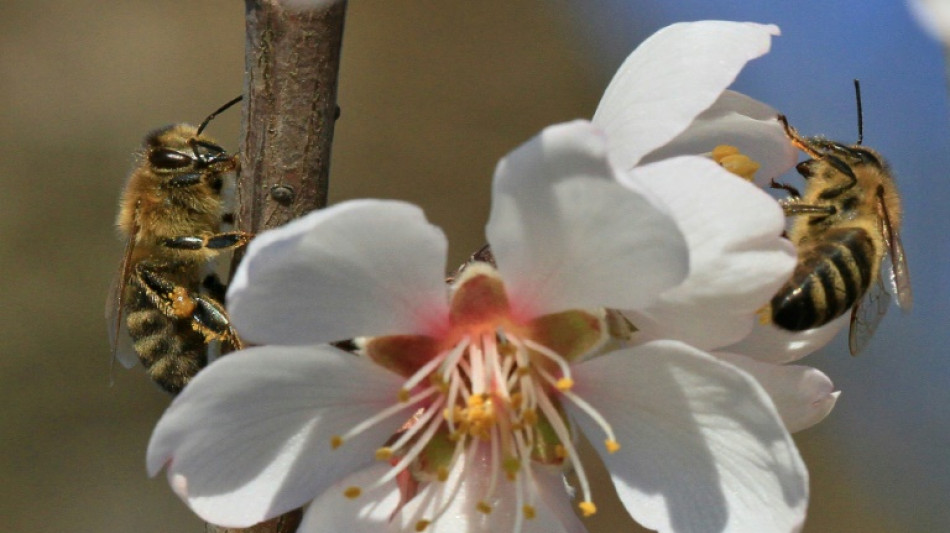
-
 Ex-model testifies in NY court that Weinstein assaulted her at 16
Ex-model testifies in NY court that Weinstein assaulted her at 16
-
'Great honor': world leaders welcome first US pope

-
 Pacquiao to un-retire and fight Barrios for welterweight title: report
Pacquiao to un-retire and fight Barrios for welterweight title: report
-
Trump unveils UK trade deal, first since tariff blitz

-
 Man Utd one step away from Europa League glory despite horror season
Man Utd one step away from Europa League glory despite horror season
-
Jeeno shines on greens to grab LPGA lead at Liberty National

-
 Mitchell fires PGA career-low 61 to grab Truist lead
Mitchell fires PGA career-low 61 to grab Truist lead
-
AI tool uses selfies to predict biological age and cancer survival

-
 Extremely online new pope unafraid to talk politics
Extremely online new pope unafraid to talk politics
-
Postecoglou hits back as Spurs reach Europa League final

-
 Chelsea ease into Conference League final against Betis
Chelsea ease into Conference League final against Betis
-
Pope Leo XIV: Soft-spoken American spent decades amid poor in Peru

-
 First US pope shared articles critical of Trump, Vance
First US pope shared articles critical of Trump, Vance
-
'Inexcusable' - NBA champs Boston in trouble after letting big leads slip

-
 US automakers blast Trump's UK trade deal
US automakers blast Trump's UK trade deal
-
Stocks mostly rise as US-UK unveil trade deal

-
 Trump presses Russia for unconditional 30-day Ukraine ceasefire
Trump presses Russia for unconditional 30-day Ukraine ceasefire
-
Anything but Europa League glory 'means nothing' for Man Utd: Amorim

-
 'Inexcuseable' - NBA champs Boston in trouble after letting big leads slip
'Inexcuseable' - NBA champs Boston in trouble after letting big leads slip
-
Pope Leo 'fell in love with Peru'and ceviche: Peru bishop

-
 Pakistan's T20 cricket league moved to UAE over India conflict
Pakistan's T20 cricket league moved to UAE over India conflict
-
India tells X to block over 8,000 accounts

-
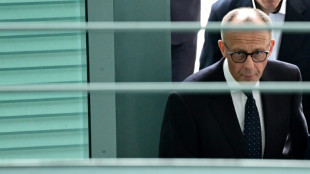 Germany's Merz tells Trump US remains 'indispensable' friend
Germany's Merz tells Trump US remains 'indispensable' friend
-
Ex-model testifies in NY court that Weinstein assaulted her as a minor
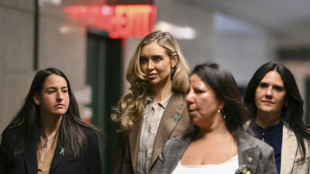
-
 Chelsea ease past Djurgarden to reach Conference League final
Chelsea ease past Djurgarden to reach Conference League final
-
Man Utd crush Athletic Bilbao to set up Spurs Europa League final

-
 Spurs reach Europa League final to keep Postecoglou's trophy boast alive
Spurs reach Europa League final to keep Postecoglou's trophy boast alive
-
US unveils ambitious air traffic control upgrade
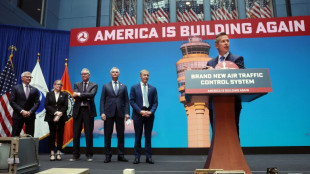
-
 US climate agency stops tracking costly natural disasters
US climate agency stops tracking costly natural disasters
-
Germany slams Russian 'lies', France warns of war 'spectre' in WWII commemorations
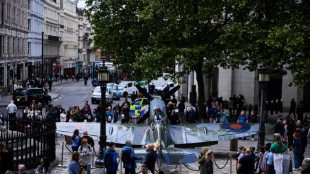
-
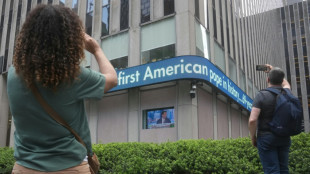 'A blessing': US Catholics celebrate first American pope
'A blessing': US Catholics celebrate first American pope
-
Trump hails 'breakthrough' US-UK trade deal
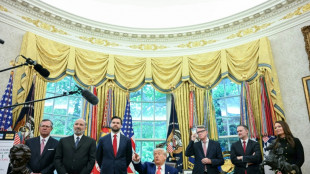
-
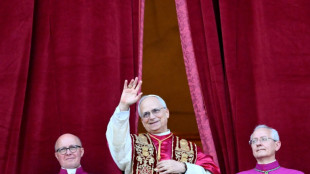 Cardinals elect first American pope as Robert Francis Prevost becomes Leo XIV
Cardinals elect first American pope as Robert Francis Prevost becomes Leo XIV
-
NHL Ducks name Quenneville as coach after probe into sex assault scandal

-
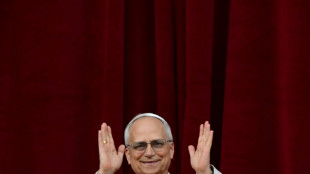 'Great honor': Leaders welcome Leo, first US pope
'Great honor': Leaders welcome Leo, first US pope
-
What is in the new US-UK trade deal?
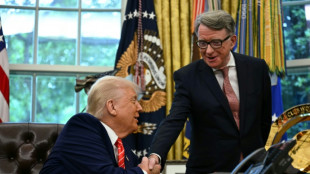
-
 MLB Pirates fire Shelton as manager after 12-16 start
MLB Pirates fire Shelton as manager after 12-16 start
-
Alcaraz '100 percent ready' for return to action in Rome

-
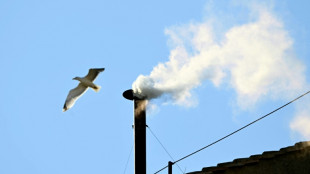 Prevost becomes first US pope as Leo XIV
Prevost becomes first US pope as Leo XIV
-
Andy Farrell holds out hope for son Owen after Lions omission

-
 Roglic leads deep field of contenders at tricky Giro d'Italia
Roglic leads deep field of contenders at tricky Giro d'Italia
-
White smoke signals Catholic Church has new pope
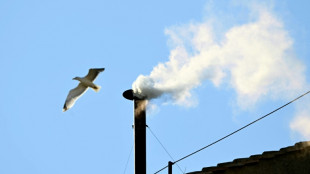
-
 Bill Gates speeds up giving away fortune, blasts Musk
Bill Gates speeds up giving away fortune, blasts Musk
-
LA Coliseum, SoFi Stadium to share 2028 Olympic opening ceremony

-
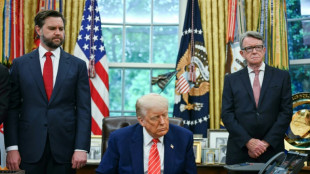 Trump unveils 'breakthrough' US-UK trade deal
Trump unveils 'breakthrough' US-UK trade deal
-
Andy Farrell holds out hope for Owen Farrell after Lions omission

-
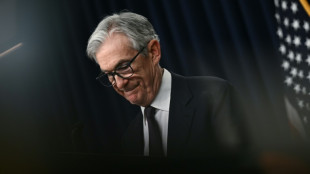 Trump calls US Fed chair 'fool' after pause in rate cuts
Trump calls US Fed chair 'fool' after pause in rate cuts
-
Stocks rise as US-UK unveil trade deal
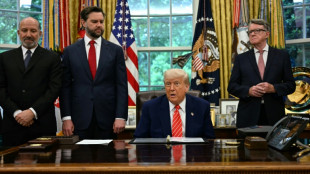
-
 UN says Israel school closures in east Jerusalem 'assault on children'
UN says Israel school closures in east Jerusalem 'assault on children'
-
Itoje grateful for 'tremendous honour' of leading Lions in Australia


Biodiversity loss threatens economic stability: central banks report
Central banks have underestimated the significant threat posed by biodiversity loss, a new report said Thursday, warning that financial institutions and businesses were destroying the natural assets that they depend on.
While climate change is increasingly factored into calculations of systemic economic risks, the report by central bankers, financial supervisors and academics said the comparable threats from the biodiversity crisis had only recently begun to be appreciated.
"Biodiversity supports all life on our planet," said Ravi Menon, chairman of the Central Banks and Supervisors' Network for Greening the Financial System, in his foreword to the report.
"But we are eroding this biodiversity at a pace that is severely damaging the natural ecosystems that provide us with food, water and clean air. This in turn could pose significant risks to economic, financial and social stability."
The report, compiled with input from dozens of central banks, comes amid international negotiations in Geneva to thrash out a global deal to protect nature up to mid-century that has been compared to the Paris Agreement for climate change.
Some 200 nations are set to sign off on this biodiversity framework, which includes a proposal to protect 30 percent of the world's habitats, at the UN's COP15 conference later this year in China.
The new report stressed the impact the financial system can make on biodiversity, through lending, investment and insurance choices.
- Appetite for destruction -
It also underscored how dependent economic and financial systems are on healthy and functioning ecosystems and the risks that arise when these natural processes are damaged.
For example, crops yields are threatened by losses of pollinator species, which are caused by the destruction and break-up of habitats, pesticide pollution, and climate change.
Meanwhile, deforestation can cause changes not just to the local habitat, but the hydrological cycle as well, it said, noting research suggesting human pressures could cause the Amazon rainforest to pass a tipping point that would transform it into a savannah.
The Inter-American Development Bank has estimated that policies to prevent the Amazon reaching this threshold -- curbing deforestation, investing in sustainable agriculture, improving fire management -- would generate approximately $339.3 billion in additional wealth.
Researchers did, however, also warn that transition to a global economy that protects nature creates its own potential challenges.
"It's not that these government policies are wrong," said Nick Robins, of the Grantham Research Institute on Climate Change and the Environment at the London School of Economics, who was co-chair of the study group behind the report.
"It's just that maybe the current investments of these businesses and financial institutions are misaligned with a healthy ecosystem."
The report said some countries had begun to take action, but it urged central banks to come up with a coordinated global response to the biodiversity crisis.
"Inaction is also a choice" with inherent costs, said Robins, stressing that threats to nature should be integrated into the risk outlooks and calculations of central banks.
"Biodiversity loss is a threat to financial stability," he added.
L.Mason--AMWN